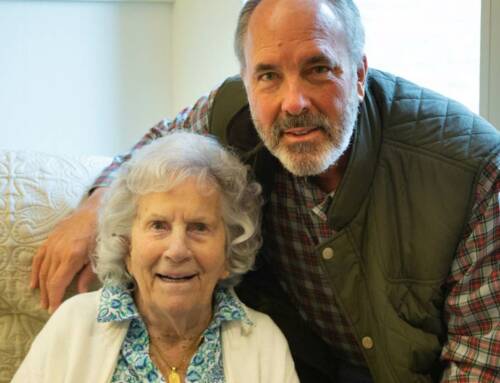When a loved one comes face-to-face with a less than favorable medical prognosis, many families struggle with what to do next. Advance care planning can be the topic of a difficult family meeting, but an important one, nonetheless.
The National Institute on Aging states more than one out of four Americans face questions about medical treatment near the end of life but are not capable of making those decisions.
Through advance care planning, you make decisions about the care and treatments you would want to receive if you become unable to express decisions for yourself.
Sometimes, when doctors believe a cure is no longer possible, decisions must be made about the use of emergency treatments to keep you alive. These treatments can include CPR, ventilator utilization, artificial nutrition, hydration and comfort care.
“Talking about your choices regarding these medical decisions can be difficult, but there are benefits,” Maureen Dolk-Metcalfe, director of hospice services, said.
“It can take a huge burden off loved ones who could otherwise be left with making important decisions without you or your consent.”
These preferences are often put into an advance directive, which is a legal document that goes into effect only if you are incapacitated. The two elements in an advance directive include a living will and a durable power of attorney for health care. Other documents could include organ and tissue donation forms.
When your family is aware of your wishes, they can ensure they are communicating to your physician in order to be your advocate in a time of crisis.
“Give a copy of your advance directive to your physician for your medical records and to your family members,” Maureen said, “and review your decisions from time to time.”
In April, Masonic Village Hospice held its first Advance Care Planning Seminar in conjunction with Masonic Village’s Home Health and Home Care service providers.
“Addressing death will never be easy, but it is necessary,” Maureen said. “As time goes on, there will be more and more medical advances available that can prolong lives, but not everyone may want them.”
Studies show patients who engage in advance care planning are less likely to pass away in the hospital and experience last resort and unnecessary surgeries. Earlier conversations about their goals and use of hospice services can better control symptoms and the psychological and spiritual well-being of a loved one.
Advance care planning is a service offered through Masonic Village Hospice, and staff are well prepared to help any family or individual accomplish their health care goals.




